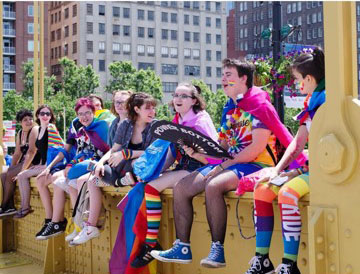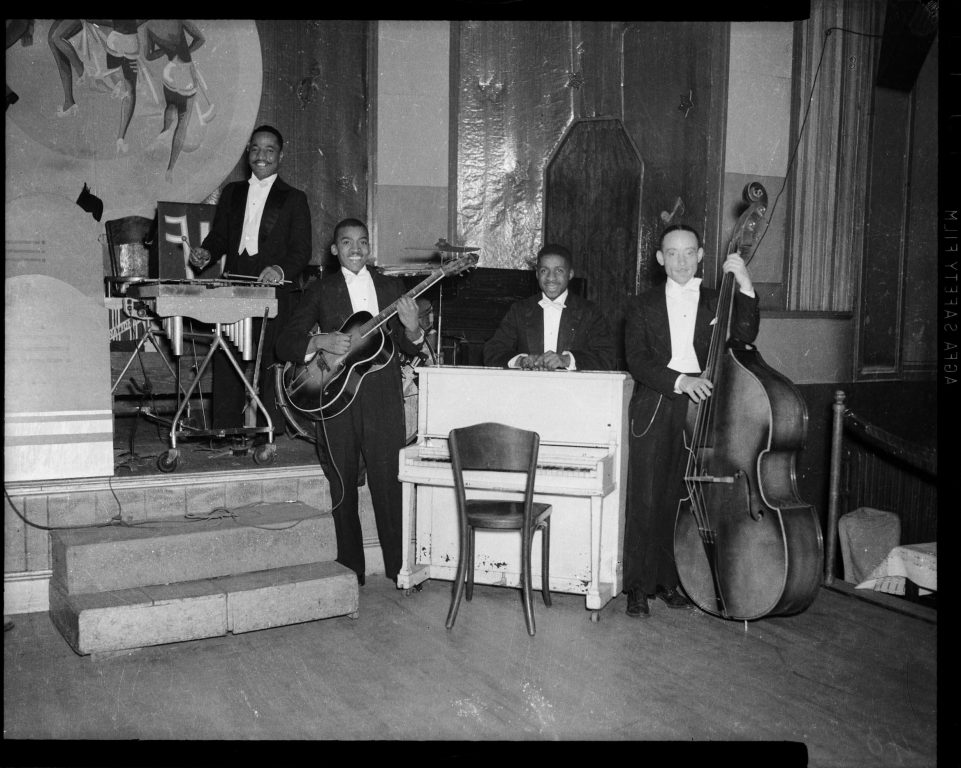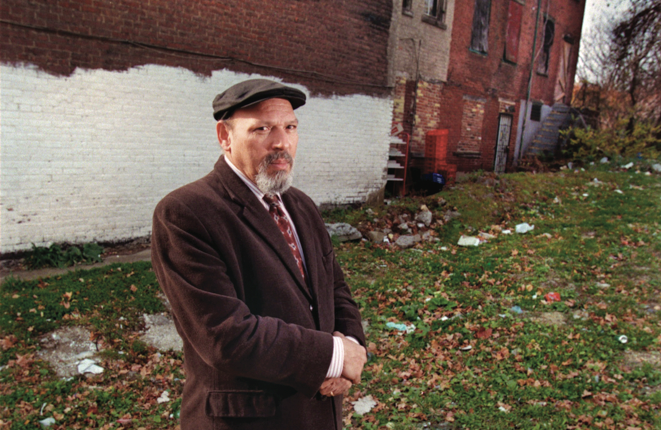
Summer @ CMU Newsletter: Issue II
Welcome back to (Virtual) Summer @ CMU and Issue II of the Summer Studies newsletter! This summer is unlike any other and we’re glad you’ve decided to spend it with us. Now that you’re well into the summer term, we hope you’re finding time to have some summer fun, relax, and practice self-care.
While we are looking forward to the rest of the summer term, we would be remiss if we did not mention that this summer has been challenging. In the midst of the COVID-19 pandemic, the transgender community saw healthcare protections rolled back and the Black and African American community continue to experience systemic racism. Yet we are also seeing change: the Supreme Court has confirmed employment protections for the LGBTQ+ community and blocked the Administration from ending the Deferred Action for Childhood Arrivals (DACA) program, and the Black Lives Matter movement has ignited an emotional, global response with organized protests in all 50 states and 18 countries.
As active members of society and within our CMU community, it's important to acknowledge the existence of systemic racism, homophobia, transphobia, and all other forms of discrimination and to understand their roots. Gaining a better historic understanding and educating ourselves is just the first step in dismantling harmful systems. Taking action in response to oppression, honoring the points at which our identities and communities intersect, and coming together in solidarity as allies with all marginalized groups to continue in the critical fight for social justice and equity will lead us toward institutional change, and make for a better America.
Summer Studies aims to be inclusive in our practices and policies, and we are committed to working with our students and the university to improve our programming and to create a more equitable environment. We invite summer students to submit feedback, programming ideas, or thoughts about enhancing the summer experience to summer-studies@andrew.cmu.edu.
Campus Resources: The Center for Student Diversity and Inclusion and Counseling and Psychological Services (CaPS)
The Center for Student Diversity and Inclusion
The Center supports and connects historically underrepresented students and those who are first in their family to attend college in a setting where students' differences and talents are appreciated and reinforced. The Center is hosting a number of virtual events and workshops this summer. All listed times are Pittsburgh time (Eastern Time/ET).
Upcoming Events
- June 23, 4:30-5:30 p.m. - Virtual Podcast Recording: Robin DiAngelo's White Fragility (RSVP for the discussion here)
Visit the Center's webpage for more information.
Counseling and Psychological Services (CaPS)
CaPS provides a safe, confidential environment for students to talk about personal and academic concerns, including after-hours support, teletherapy for Pennsylvania residents, and support for out-of-state students.
This summer, CaPS will be hosting a number of remote workshops focusing on issues such as overcoming your inner critic, nurturing a sense of home from afar, managing stress during your job search, and more. All listed times are Pittsburgh time (Eastern Time/ET).
Upcoming Workshops
- July 13, 4:30-5:45 p.m. - Understanding and Resisting the Power Differential Experienced by International Students (Zoom ID: 91418473454)
- July 22, 2-3 p.m. - Spiral Up: Intuitive Eating and How to Be Kind to Your Body in Times of Stress (Zoom ID: 96946231522)
Visit the CaPS webpage for more information.
Juneteenth & Stonewall
Celebrating Juneteenth
On June 19, we celebrated the ending of slavery in the United States. On this day in 1865, Major General Gordon Granger led Union soldiers to Galveston, Texas to report that the war was over and the enslaved were free. Although there is not much federal recognition, the holiday is traditionally celebrated with community gatherings, such as festivals, block parties, parades, and, of course, barbecues. Local Black business, Black artists, and Black youth organizations are usually showcased during these community gatherings.
Remembering Stonewall
In honor of Pride month, we look back to the progressive Stonewall Riots of 1969. On June 28 of that year, the NYPD raided a popular gay club in Greenwich Village called the Stonewall Inn. As police rushed employees and customers out of the bar, a riot ensued. The raid led to six days of protests outside of the bar and in surrounding neighborhoods. From the Stonewall Riots, many LGBTQ+ rights organizations were born, including the Gay Liberation Front, Human Rights Campaign, GLAAD, and PFLAG. On the first anniversary of the riots, people gathered and marched, creating the first pride parade.
Instagram Contest Deadline Extended!
We've extended the deadline for the first round of our Summer Studies Instagram contest! The theme for our first round is pets. Don’t have a pet? You can still enter—we’ll accept photos of any cute animal you come across.
Tag pictures of your animal friends with #VirtualCMUSummer by July 7 to enter. The winning image will be announced in the next issue of our summer newsletter, featured on our social media, and displayed on the Summer Studies website.


Tag the Summer Studies Virtual Graffiti Wall
We may not be on campus together this summer, but that doesn’t mean we can’t build a strong Summer Studies community from a distance. That's why we're asking you to "tag" our virtual graffiti wall.
How it Works
Post a kind note to a fellow Summer Studies student on social media. Use whichever platform you prefer: Instagram, Facebook, Twitter...anything goes! Get creative: post a photo of the two of you together, hand write your note and upload a photo, leave a note or a gift on your friend's Animal Crossing island and take a screenshot.

Tag your post #VirtualCMUSummer and we'll add it to a virtual graffiti wall webpage, where we'll compile all of your kind words. Let's keep our community strong, thriving, and supportive, even at a distance.
Pittsburgh History Spotlight: The Hill District
In Issue II, we’re shining our spotlight on the Hill District. Sitting next door to Oakland, the Hill is Pittsburgh’s oldest historically black community and boasts a fascinating history which has shaped the cultural landscape on a national scale.
Beginning in the 1920s, an artistic and entrepreneurial revolution was ignited in the Hill, as business owners opened a slate of night clubs, bars, and restaurants. This bustling scene soon made the Hill a nationally-recognized jazz hot spot, providing a platform for local musicians and attracting nationally-known musicians like Duke Ellington, who earned the title “King of Jazz” from a reporter at the Pittsburgh Courier.

James "Honey Boy" Minor, Joe Westray, Erroll Garner, & George "Ghost" Howell pose on stage at the Hill District's Harlem Casino (ca. 1939-1940). Photo by Teenie Harris via the Carnegie Museum of Art's Teenie Harris Archive.
A detailed archive of images from this time was collected by photographer Charles “Teenie” Harris (1908-1998). Known as “one shot” for his ability to take a perfect picture on the first try, Teenie Harris photographed cultural icons including Lena Horne and Ray Charles and spent decades documenting day-to-day life in Pittsburgh’s African American communities. Harris’s work is on display at the Carnegie Museum of Art’s Teenie Harris Archive.
The Hill District also inspired the work of two-time Pulitzer Prize winning playwright, August Wilson (1945-2005), who dedicated much of his work to rendering life in the neighborhood where he was born and spent the first thirteen years of his life. Over the course of his decades-long career, Wilson would author the award-winning Pittsburgh Cycle (also called the Century Cycle), ten plays each set in a different decade, nine of which take place in the Hill District. Fences, the best known of Wilson’s Pittsburgh Cycle plays, was adapted into a movie directed by and starring Denzel Washington, alongside Viola Davis.

August Wilson outside his childhood home, 1999. Image via August Wilson House.
Wilson's work serves as a depiction of the Hill’s boom, but his plays also chronicle the neighborhood’s decline. In the 1950s, when the construction of Pittsburgh’s Civic Arena displaced thousands of residents, the Hill was cut off from adjacent neighborhoods. This severing lead to a slow erosion of the Hill’s population and eventually destroyed much of its arts and business community.
While the Hill District has struggled in the decades since, it is still host to vibrant community organizations and events, including Ujamaa Collective, a non-profit which helps develop opportunities for Africana women artisans; August Wilson House, the playwright’s childhood home, which is being developed into an arts center; two community farms, the Dwayne Cooper Garden of Hope and Landslide Community Farm; and People’s Pride, a Pride march organized by SisTers PGH, which begins its route in the Hill.
People's Pride 2019. Image via SisTers PGH.
Notes:
- Both Ujamaa Collective and August Wilson House are operating at limited capacity due to COVID-19; keep an eye on their websites for programming and event updates or check out their online stores.
- While People’s Pride traditionally takes place during Pride Month in June, this year’s march has been postponed until October due to COVID-19.


